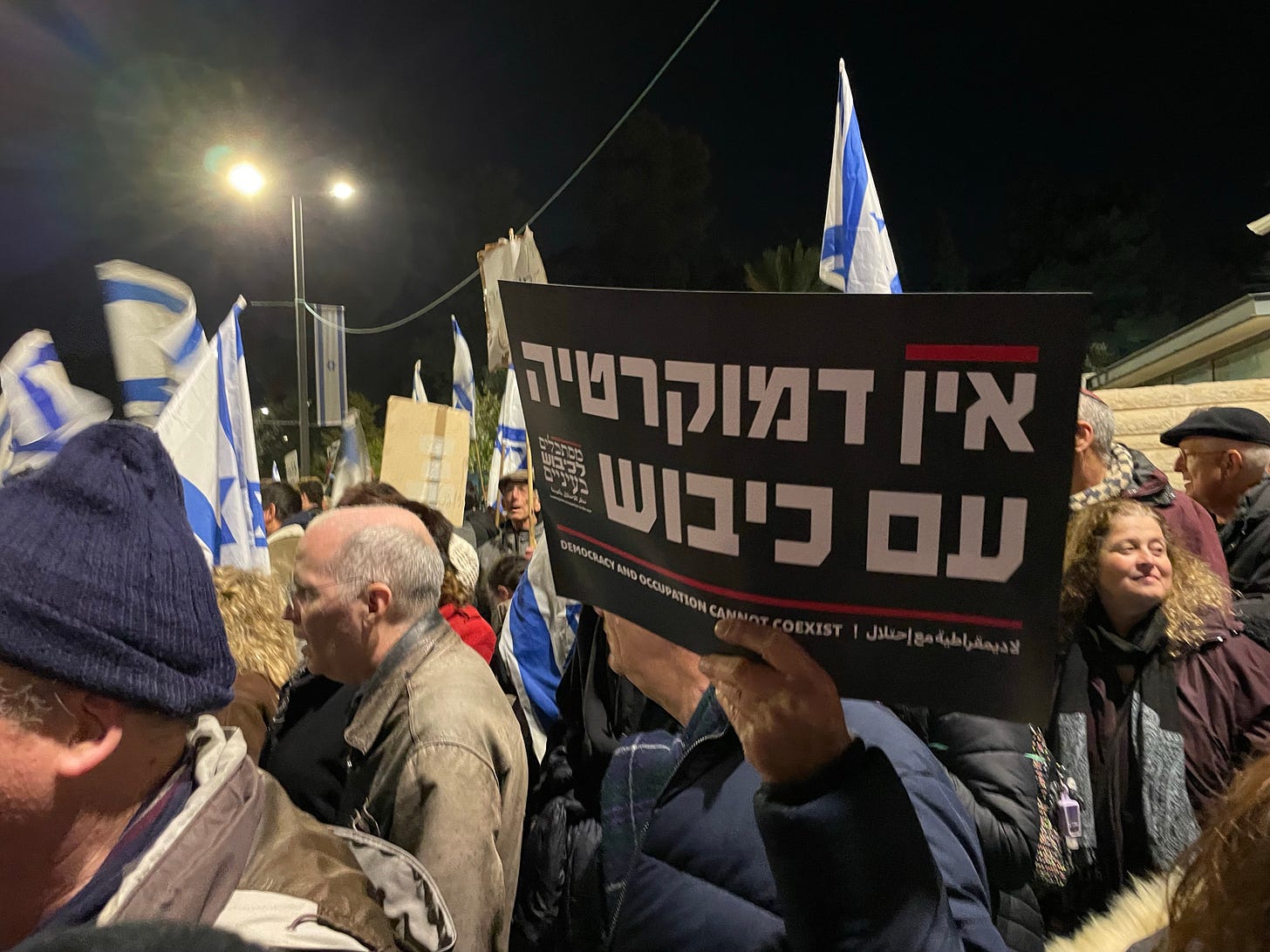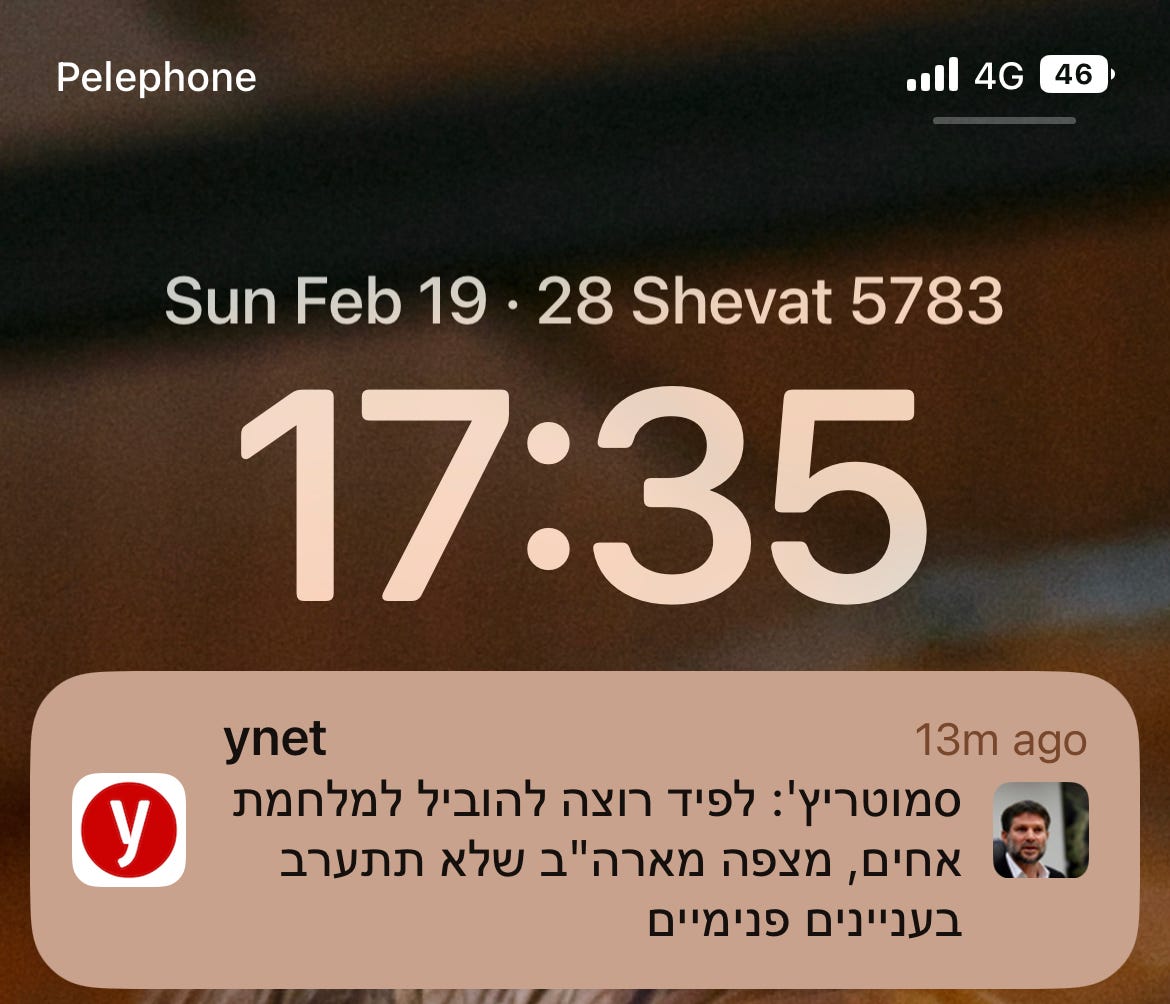We do not usually send out two pieces, two days in a row. These are not usual times.
Those who know of the work of Professor Yedidia Stern know that he is one of Israel’s foremost legal minds, and one of Israel’s most thoughtful and moderate thinkers. That makes his warning, in the video above which we share with his explicit permission, all the more poignant.
Professor Stern is President of the Jewish People Policy Institute and a full professor in the Faculty of Law at Bar-Ilan University. He is an alumnus of the Kerem B'Yavneh hesder yeshiva (1973-1978); holds a law degree (summa cum laude) from Bar-Ilan University (1982), and a doctorate in corporate law from Harvard University (1986). Stern has served as dean of Bar-Ilan University's Faculty of Law (1994-1998), and was a Senior Fellow at the Israel Democracy Institute (1989-2000). For a decade he served as the IDI's Vice President for Research.
Listen to his very brief comments, and take in the degree of his dread for what may lie just around the corner.
Professor Stern is hardly alone. This past weekend, the following advertisement for an alternate protest, a protest of the RIGHT against passing the judicial reform now, was printed in papers left and right. Why a separate protest? Because in the large, “default” protest in Jerusalem, people have started arriving with “there can be no democracy when there’s an occupation” signs.

The conflict with the Palestinians is a huge issue, obviously, but it’s not the issue of the day, and many religious people and those on the right (there’s overlap, but the groups are not identical) do not feel comfortable being at a protest at which opposition to the occupation is becoming an increasingly pronounced issue (there were many more such signs there this week than there were in the past). So those on the right—on the right but opposed to passing the judicial reform in its present form and at this time—staged an alternate protest.
My wife and I went to the first protest, as we do every week, but stopped by the alternate, too. It was actually very moving. The speaker said, as we arrived, “I say to us, the religious and the Haredim, the Torah is about love. It’s about bridges. It’s about dialogue.” And then he spoke about the danger of civil war.
“Civil war,” whatever that means, is the fear of the right, too. See the ad for the alternative protest below. We’ve provided a very basic translation of the advertisement to the right.
In what I thought was a beautiful gesture, the “alternate” protest of the right concluded by walking over to the “main” protest, and joining it. That’s walking the walk.
And finally, note the following that appeared on my phone on Sunday afternoon. It’s but one of many. There’s a veritable flood of these:
It’s a notification from YNet, the most popular Israeli news site. And it reads: “Smotrich: Lapid is trying to spark a civil war; I expect the United States to refrain from interfering in Israel’s internal affairs.”
It didn’t take long for Lapid to return the fire.
“Lapid responds to Smotrich: those who wish to prevent civil war do not press forward with hasty and dangerous legislation that is tearing the people to shreds.”
It (almost) doesn’t matter any more what one thinks about the judicial reform. The greatest danger facing Israel may not be the judicial reform (or “judicial overthrow” as others call it), but the civil war that it could spark. This country does not have a gun problem, but there are a lot of guns in the homes of this country. It’s hard to know exactly what civil war looks like, but it’s not hard to imagine violence at any one of the massive protests now popping up across the country. If that should happen, we’re in uncharted territory.
If people on both sides are not careful, Israelis are going to wish for those idyllic days when all people had to fear was a constitutional crisis.
Impossible Takes Longer, which addresses some of the above themes, will be published this April. It’s available now for pre-order on Amazon and Barnes & Noble.
Our twitter feed is here; feel free to join there, too.









"I was here in 1995, and this time could be worse."